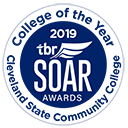Median wages
$30,450
Counsel with emphasis on prevention. Work with individuals and groups to promote optimum mental and emotional health. May help individuals deal with issues associated with addictions and substance abuse; family, parenting, and marital problems; stress management; self-esteem; and aging.
- Maintain confidentiality of records relating to clients' treatment.

- Encourage clients to express their feelings and discuss what is happening in their lives, helping them to develop insight into themselves or their relationships.

- Collect information about clients through interviews, observation, or tests.

- Assess patients for risk of suicide attempts.

- Fill out and maintain client-related paperwork, including federal- and state-mandated forms, client diagnostic records, and progress notes.

- Prepare and maintain all required treatment records and reports.

- Counsel clients or patients, individually or in group sessions, to assist in overcoming dependencies, adjusting to life, or making changes.

- Guide clients in the development of skills or strategies for dealing with their problems.

- Perform crisis interventions with clients.

- Develop and implement treatment plans based on clinical experience and knowledge.

- Evaluate clients' physical or mental condition, based on review of client information.

- Act as client advocates to coordinate required services or to resolve emergency problems in crisis situations.

- Modify treatment activities or approaches as needed to comply with changes in clients' status.

- Evaluate the effectiveness of counseling programs on clients' progress in resolving identified problems and moving towards defined objectives.

- Meet with families, probation officers, police, or other interested parties to exchange necessary information during the treatment process.

- Discuss with individual patients their plans for life after leaving therapy.

- Collaborate with other staff members to perform clinical assessments or develop treatment plans.

- Counsel family members to assist them in understanding, dealing with, or supporting clients or patients.

- Monitor clients' use of medications.

- Plan, organize, or lead structured programs of counseling, work, study, recreation, or social activities for clients.

- Learn about new developments in counseling by reading professional literature, attending courses and seminars, or establishing and maintaining contact with other social service agencies.

- Refer patients, clients, or family members to community resources or to specialists as necessary.

- Gather information about community mental health needs or resources that could be used in conjunction with therapy.

- Supervise other counselors, social service staff, assistants, or graduate students.

- Plan or conduct programs to prevent substance abuse or improve community health or counseling services.

- Coordinate or direct employee workshops, courses, or training about mental health issues.
- Analytical or scientific software — Statistical software; Test interpretation software

- Calendar and scheduling software — Scheduling software

- Data base user interface and query software — Database software; Microsoft Access


- Electronic mail software — Email software; Microsoft Outlook


- Enterprise resource planning ERP software
 — Management information systems MIS
— Management information systems MIS
- Internet browser software — Microsoft Internet Explorer; Netscape Navigator; Web browser software

- Medical software — Client information database systems; Patient electronic medical record EMR software

- Office suite software — Microsoft Office

- Spreadsheet software — Microsoft Excel


- Word processing software — Microsoft Word

![]() Hot Technology — a technology requirement frequently included in employer job postings.
Hot Technology — a technology requirement frequently included in employer job postings.
- Active Listening — Giving full attention to what other people are saying, taking time to understand the points being made, asking questions as appropriate, and not interrupting at inappropriate times.

- Social Perceptiveness — Being aware of others' reactions and understanding why they react as they do.

- Service Orientation — Actively looking for ways to help people.

- Speaking — Talking to others to convey information effectively.

- Critical Thinking — Using logic and reasoning to identify the strengths and weaknesses of alternative solutions, conclusions or approaches to problems.

- Judgment and Decision Making — Considering the relative costs and benefits of potential actions to choose the most appropriate one.

- Monitoring — Monitoring/Assessing performance of yourself, other individuals, or organizations to make improvements or take corrective action.

- Writing — Communicating effectively in writing as appropriate for the needs of the audience.

- Reading Comprehension — Understanding written sentences and paragraphs in work related documents.

- Persuasion — Persuading others to change their minds or behavior.

- Active Learning — Understanding the implications of new information for both current and future problem-solving and decision-making.

- Learning Strategies — Selecting and using training/instructional methods and procedures appropriate for the situation when learning or teaching new things.

- Complex Problem Solving — Identifying complex problems and reviewing related information to develop and evaluate options and implement solutions.

- Coordination — Adjusting actions in relation to others' actions.

- Negotiation — Bringing others together and trying to reconcile differences.

- Systems Evaluation — Identifying measures or indicators of system performance and the actions needed to improve or correct performance, relative to the goals of the system.

- Instructing — Teaching others how to do something.

- Science — Using scientific rules and methods to solve problems.

- Systems Analysis — Determining how a system should work and how changes in conditions, operations, and the environment will affect outcomes.

- Management of Personnel Resources — Motivating, developing, and directing people as they work, identifying the best people for the job.

- Operations Analysis — Analyzing needs and product requirements to create a design.

- Time Management — Managing one's own time and the time of others.










